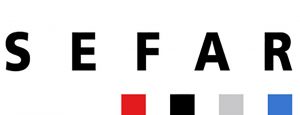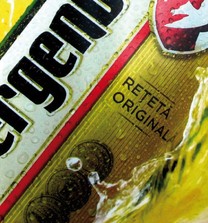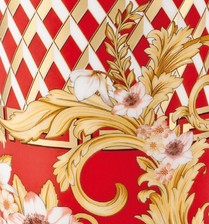- No products in the cart.


Sefar
High precision Screen Printing Mesh
Sefar are manufactures of a wide range of high-quality precision, Polyamide and Polyester mesh for screen printing, as well as pre-coated mesh (SEFAR PCF) for printing on CDs and DVDs.
Polyester Mesh
Polyester is now the most widely used screen-printing mesh as it fulfils a wide range of criteria. As a high modulus mesh, polyester can be highly stretched and still hold its tension. Sefar mesh is available in an extremely wide choice of mesh numbers and thread diameters, suitable for printing fine line art and half-tone images. Our polyester products range from the universal SEFAR PET 1000, the new SEFAR PET 1500 (soon to replace pet1000) to SEFAR PET 1000 OSC (designed for optimal results with UV inks).
We also offer SEFAR VARIO, a specially developed for the automotive industry to print car rear windscreens.
SEFAR PET 1500
The screen printing mesh professionals use
MESH FEATURES
SEFAR PET 1500 the most comprehensive range of screen printing mesh for an efficient and reproducible stencil production. It meets all the requirements for detail reproduction, homogeneity of face printing, print run consistency and registration accuracy in multi-color printing. The special SEFAR PET 1500 surface treatment aims to improve adhesion, good wettability and good antistatic properties. These features allow a high quality and efficient processing of all commercially available screen printing systems.
- Unsurpassed UV-light undercutting protection of yellow mesh
- Adhesion and preparation optimized mesh surface
- Reproducible mesh relaxation
- Good ink and paste release behaviour
- Good antistatic behavior thanks to Sefar antistatic treatment
- Wide standard range with high availability
YOUR BENEFITS
Screen / stencil maker benefit
- Sharp-edged reproduction of the artwork on the stencil
- Finest detail reproduction
- Homogeneous coating
- Easy capillary film application
- The tension drop is stable and low
- Process and product reliability
- Adhesive passes good through the mesh, therefore less problem in bonding the mesh to the frame
- Reduced susceptibility of dust
- Reduction of retouching time
- Optimizing of storage management
- Short delivery time
- High reliability ensures continuous production
Printer benefit
- High reproducibility
- Best edge definition in print
- Extended screen life
- High quality image reproduction
- Better color to color reproduction
- Good reproducibility of fine details
- Uniform ink application
- Maintaining of tightest color shade tolerances
- Error-free and clean printing
- Reduction of waste in the print process
- Ensured continual delivery of stencils
- Unlimited options of ink/paste film thickness
APPLICATIONS
- Ceramics
- Electronics
- Glass
- Graphics
- Plastics and Packaging
- Textiles
SEFAR PET 1500 impresses with its performance in a wide variety of applications, ranging from graphic screen printing in small and large sizes, such as posters, displays, and signage; printing on plastics such as sporting goods, thermoformed parts, etc.; on the decoration of ceramic, directly or indirectly, and on up to textile printing and other industrial printing tasks.

Backlit posters with halftones higher than 30 lines/cm printed with SEFAR PET 1500

For selected clear varnish on lables, printed with SEFAR PET 1500

Great detail reproduction on ceramic decals (© Rosenthal)
with SEFAR PET 1500
SEFAR PET 1500 the most comprehensive range of screen printing mesh for an efficient and reproducible stencil production. It meets all the requirements for detail reproduction, homogeneity of face printing, print run consistency and registration accuracy in multi-color printing. The special SEFAR PET 1500 surface treatment aims to improve adhesion, good wettability and good antistatic properties. These features allow a high quality and efficient processing of all commercially available screen printing systems.
- Unsurpassed UV-light undercutting protection of yellow mesh
- Adhesion and preparation optimized mesh surface
- Reproducible mesh relaxation
- Good ink and paste release behaviour
- Good antistatic behavior thanks to Sefar antistatic treatment
- Wide standard range with high availability
YOUR BENEFITS
Screen / stencil maker benefit
- Sharp-edged reproduction of the artwork on the stencil
- Finest detail reproduction
- Homogeneous coating
- Easy capillary film application
- The tension drop is stable and low
- Process and product reliability
- Adhesive passes good through the mesh, therefore less problem in bonding the mesh to the frame
- Reduced susceptibility of dust
- Reduction of retouching time
- Optimizing of storage management
- Short delivery time
- High reliability ensures continuous production
Printer benefit
High reproducibility
Best edge definition in print
Extended screen life
High quality image reproduction
Better color to color reproduction
Good reproducibility of fine details
Uniform ink application
Maintaining of tightest color shade tolerances
Error-free and clean printing
Reduction of waste in the print process
Ensured continual delivery of stencils
Unlimited options of ink/paste film thickness
Eliminates mesh degreasing:
Degreasing remains unnecessary No =Cost savings =Less environmental burden
SEFAR PET 1500: uniform wetting Test:
Rinsing with a dyed water shows clearly the difference in the wetting behaviour of the mesh. Mesh without surface treatment: gives uneven wetting
Tape Test: An adhesive tape is fixed across the stencil Mesh without Surface treatment, parts of the emulsion are remaining on the tape
SEFAR PET 1500
No emulsion on adhesive tape Improved adhesion of stencil material Optimal retaining of screen dots and fine lines Considerable prolongation of stencil life
- Improved printing results
- Even and constant ink deposit
- High-quality printing results
- Homogeneous ink deposit
- Printing on a black background This highly magnified picture shows clearly the difference of the ink deposit
- Mesh without surface treatment: uneven ink deposit, the background is partly visible
Polyamide Mesh
Info sheet Nylon fabrics were the first monofilament synthetic fibres to be used for manufacturing screen printing meshes.Info sheet Nylon fabrics were the first monofilament synthetic fibres to be used for manufacturing screen printing meshes.
Nylon fabrics are extremely strong, which makes them very suitable for printing abrasive substrates like ceramic and reflective/fluorescent inks. The high elasticity of this fabric makes it easier to print onto uneven substrates e.g. Packaging, 3-D objects. The polyamide range which includes SEFAR PA 1000 – an elastic nylon mesh for use on uneven substrates, and SEFAR PA 2000 – an even more abrasive resistant fabric for extremely very long print runs. The excellent properties of both fabrics make them suitable for the printing of 3-D objects and ceramics.

